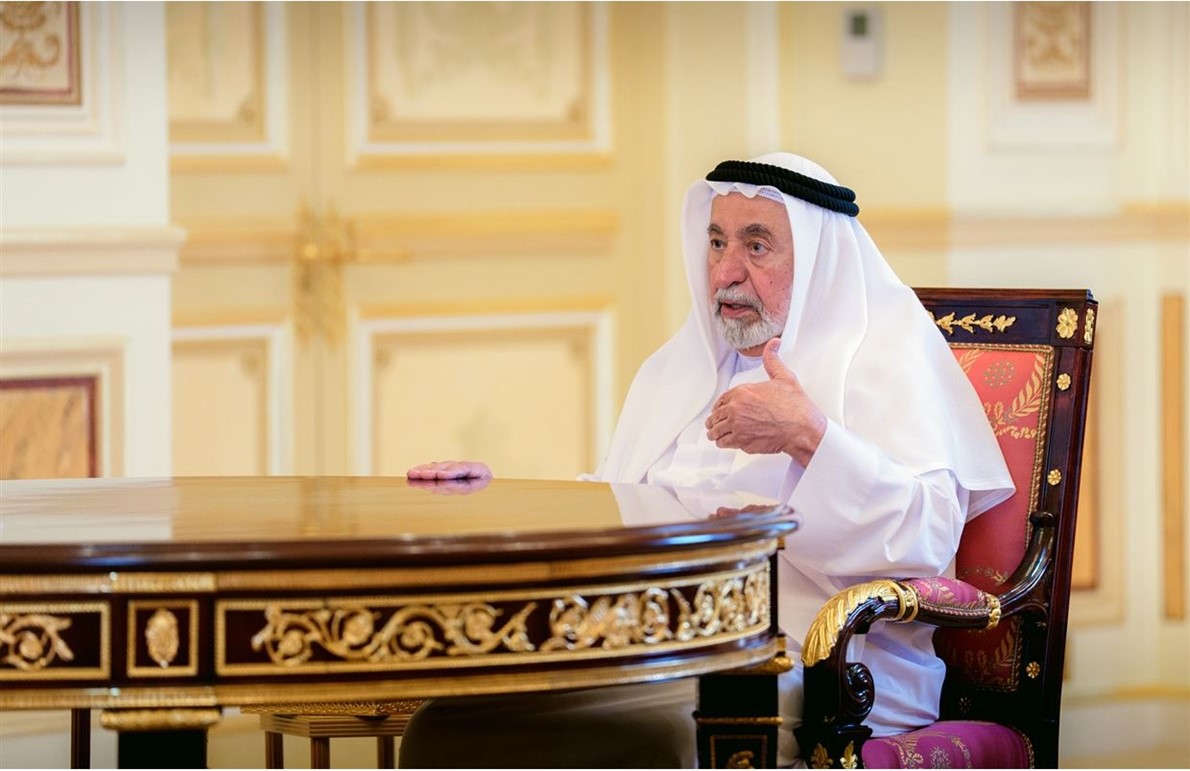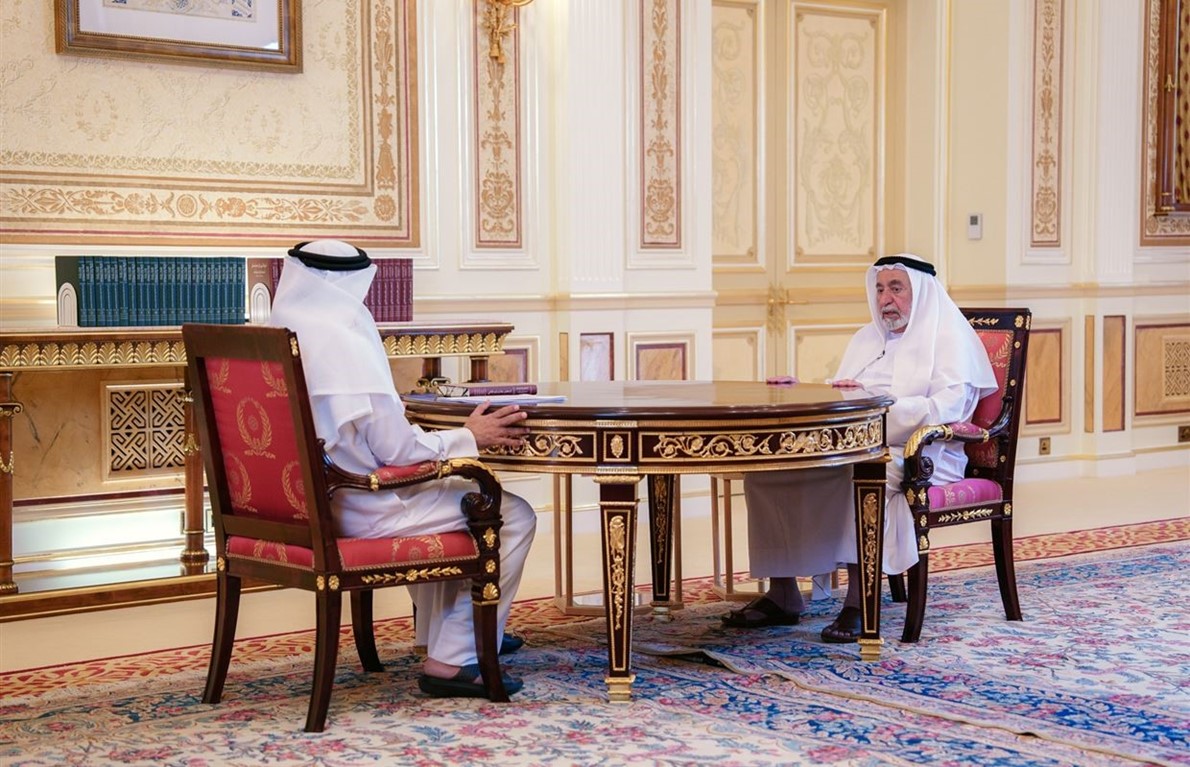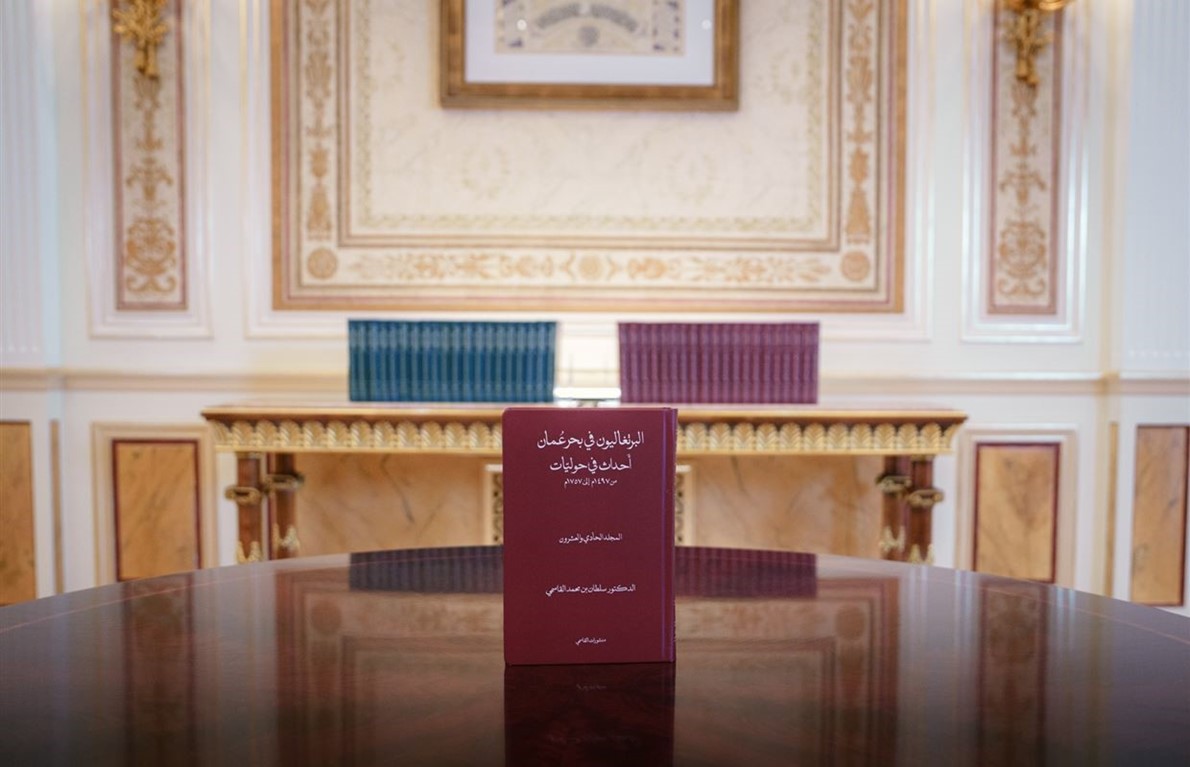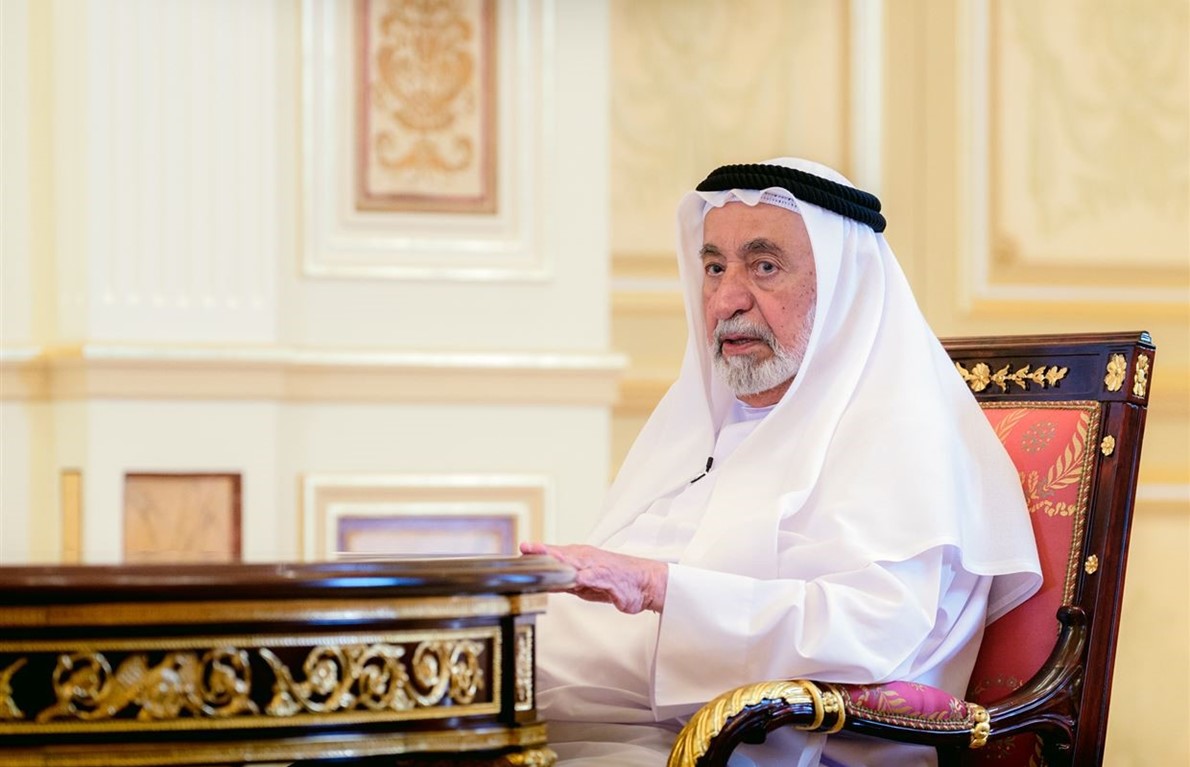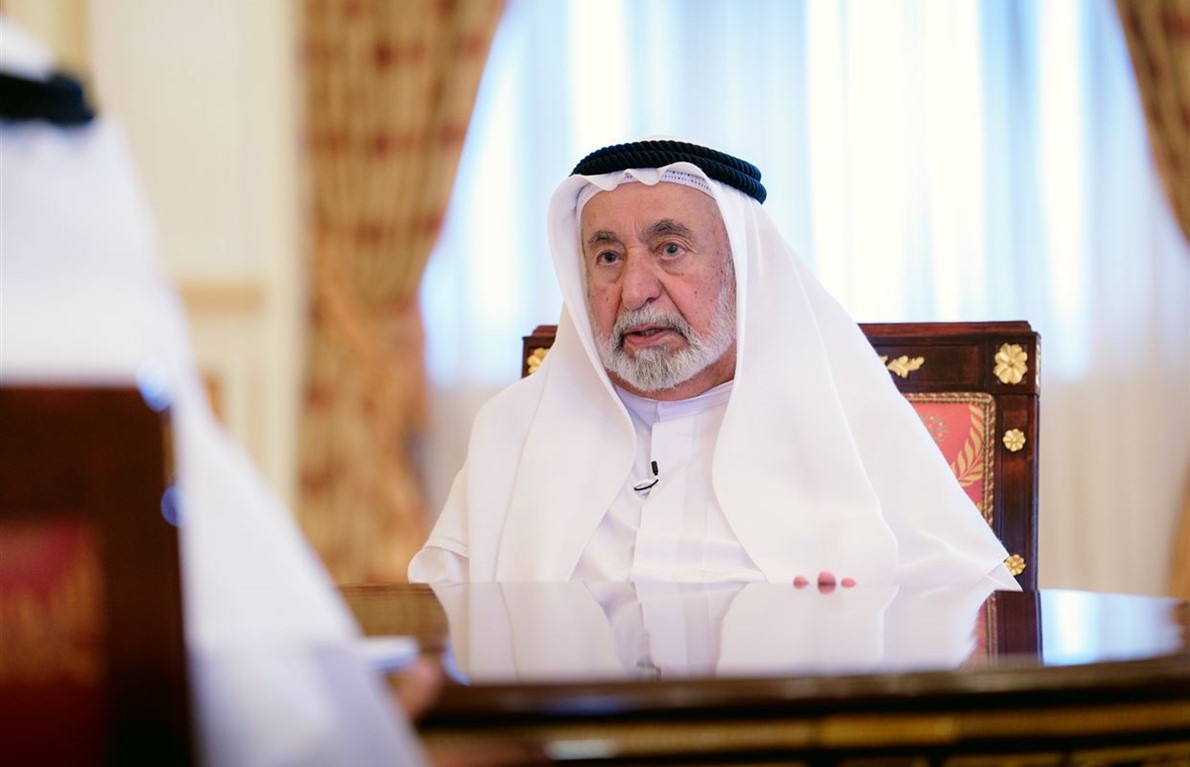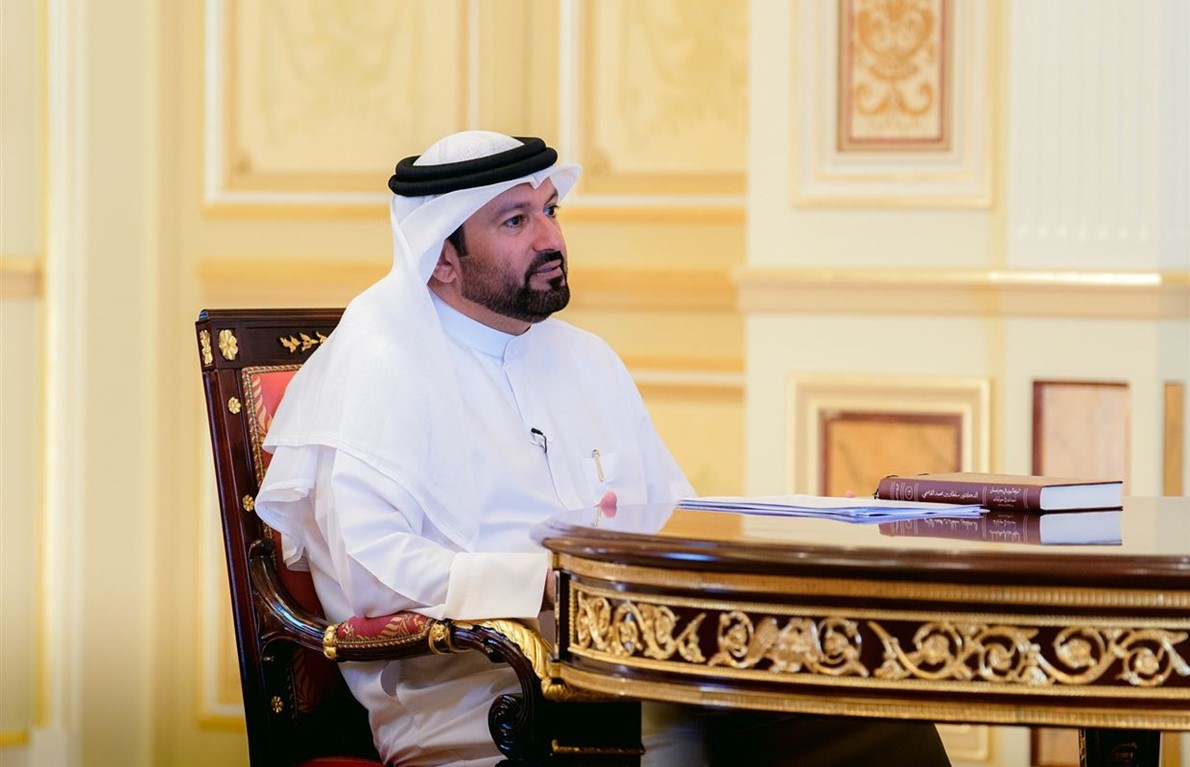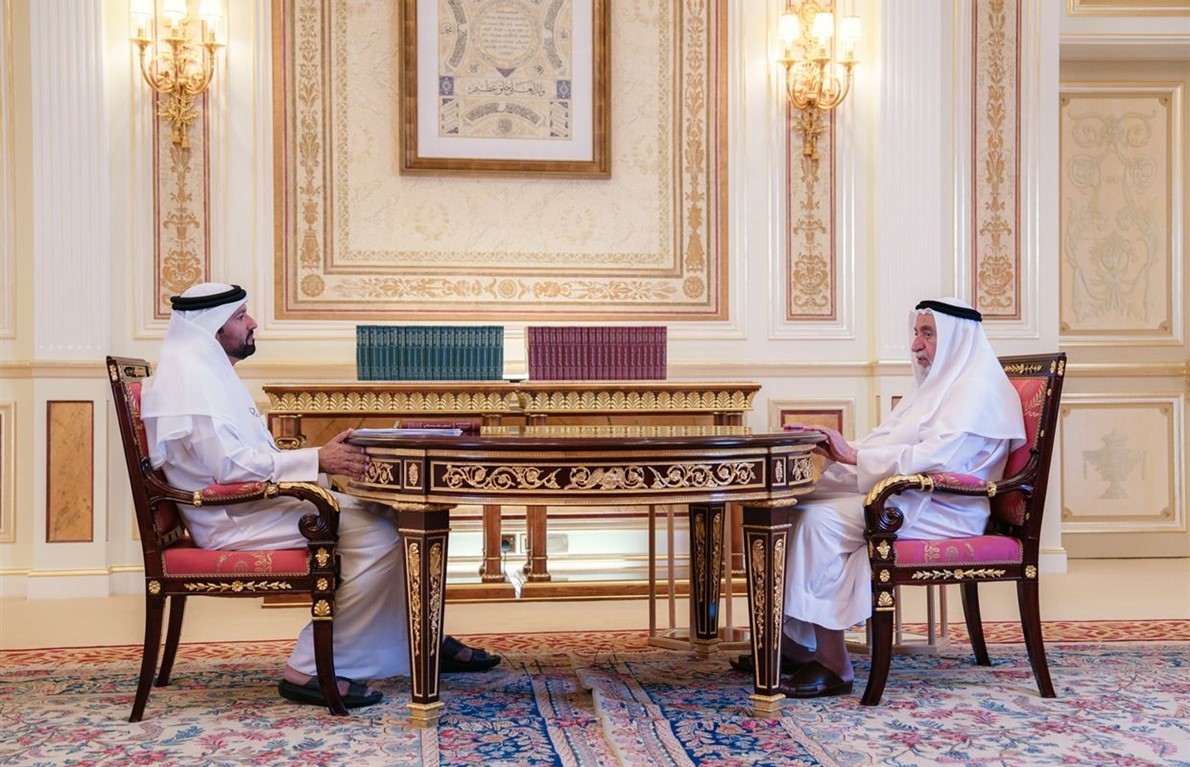His Highness Sheikh Dr. Sultan bin Muhammad Al Qasimi, Member of the Supreme Council and Ruler of Sharjah, spoke in a televised interview broadcast on Sharjah TV with Mohammed Hassan Khalaf, Director General of the Sharjah Broadcasting Authority. He discussed his latest historical and intellectual achievement: The Portuguese in the Sea of Oman — chronicling events from 1497 to 1757. The work spans 21 volumes detailing events directly tied to the region, particularly the Sea of Oman.
اضافة اعلان
His Highness began the interview by explaining in detail his project to collect, translate, and publish historical documents. He shared that in 1985, after completing his PhD and publishing his thesis, he visited the India Office Library in the UK, meeting its director Mr. Bloomfield. The director, well-versed in various historical fields including library sciences, had transformed the India Office Library into what is now the British Library.
His Highness recounted how Bloomfield was intrigued by the sources cited in the thesis and questioned their origins. He then detailed his efforts to acquire British archival documents, including a journey to Mumbai, India, where he located copies of documents unavailable in the UK. A helpful elderly Indian woman at the library informed him that Mumbai housed identical documents.
He explained to Mr. Bloomfield the challenges researchers faced in British archives, praising Mumbai’s library system for its classification and ease of access. Similar challenges also arose in Portugal, where His Highness sought Portuguese documents. He eventually copied all documents with the help of a dedicated team and library support.
A key figure in this effort was Fiona Wilkie, a staff member in the British Library’s Portuguese document section. With Bloomfield’s approval, His Highness assumed financial responsibility for her retirement and hired her to assist in collecting Portuguese archives. Many of these documents had been relocated to the UK following the British reclamation of Mumbai from the Portuguese.
The process of transferring and translating the Portuguese documents to the British Library took five years, led by a Portuguese-speaking individual named Denver and a capable team. The documents, primarily about Mumbai and beyond, were of great interest to local historians, but His Highness focused on those relating to the Gulf and the Sea of Oman.
A dedicated office in London was established, with four experts in old Portuguese translating to modern Portuguese, assisted by a team of 29 to transcribe and handle fragile handwritten materials.
Fiona was also tasked with sourcing Portuguese documents globally—from Portugal, Spain, and Goa. These were mainly held in national archives, churches, military institutions, and ports.
His Highness also collaborated with Mr. Michael Bender, a former financial officer at Crescent Petroleum, who managed a document processing office near his home in York, UK. Two women helped transfer documents from the British Library to York, converting them to typewritten formats. His Highness reviewed these over phone or mail correspondence.
He described the methodical process of collecting, translating, and organizing the documents. One such report by Mr. Bredem detailed the project’s steps and team assignments. Fiona ensured each document had a UK and Sharjah copy for parallel review.
To aid researchers, each volume includes footnotes clarifying names and place variations found in the documents. This project, spanning from 1989 to the present, took 36 years to complete.
In August 2006, 18 years into the project, His Highness received a missed call during evening prayer. The next day, he learned Fiona had delivered the final batch of documents the night before. Tragically, she passed away upon returning home. Mr. Bredem retrieved her organized files and documented the project in a memorandum, stating:
“No one, not even the Portuguese, has compiled and translated such a collection as Sheikh Dr. Sultan bin Muhammad Al Qasimi. These documents were sourced from archives in Portugal, Spain, Goa, and beyond, all concerning the Gulf, translated from old Portuguese to modern English.”
The 21-volume series The Portuguese in the Sea of Oman could lead to over 200 additional volumes. While this series focuses solely on the Sea of Oman, requests have been made to expand coverage to India and East Africa. His Highness emphasized that the documents are meant for scholarly research, not casual reading.
Each volume ends with a “Researcher’s Guide,” including summaries, His Highness’s commentary, document numbers, and page references to aid scholars.
Each file comprises 150–200 documents, aiding PhD candidates with well-indexed materials in Arabic and English.
Explaining the title The Portuguese in the Sea of Oman, His Highness said the Sea of Oman spans from Pakistan to the Strait of Hormuz and southern Salalah. The series discusses maritime navigation, shipping challenges, and trading ports in the region.
His Highness clarified that the Portuguese had no inland Gulf strongholds; their dominance came via naval power, particularly gunpowder weapons, while local defenders used swords. Their strongholds were often islands like Muscat, which is surrounded by mountains.
The series includes 1,138 documents stored digitally in Arabic and English. Ten thousand USB drives containing the archive will be distributed for free at the Muscat International Book Fair.
He praised Oman’s proud and authentic history, referencing his book Sultan of Chronicles, which recounts the resistance and victory of Oman’s rulers against colonial forces. The book highlights Omani strength from the era of the ‘Ad people to the expulsion of the Portuguese from East Africa, extending as far as Mozambique and Gwadar.
The book’s title, Sultan of Chronicles, symbolizes knowledge and authority—using historical evidence to challenge narratives. His Highness sought to explore obscure ancient history rather than widely documented periods.
His motivation stemmed from his earlier research on British occupation and propaganda. British records also referenced their conflict with the Portuguese. He traced Portuguese interest in the region to the Ottoman conquest of Constantinople, after which the Pope ordered a boycott of Muslim goods.
Europe relied on spices to preserve meat and sought cotton and silk due to unsuitable wool clothing in hot climates. Thus, trade routes to India and China were vital.
His Highness outlined the Silk Road, stretching from China through Sindh and Kerman, to Syria, Turkey, and Europe. Wars and bandits sometimes disrupted it, prompting the use of the Indus River to reach the Sea of Oman and continue by sea.
Merchants would sail from the Indus to Sohar, then to Mleiha and Al-Dur in Umm Al-Quwain, continuing to Persia. Alternative routes through Dibba caused disputes among Alexander the Great’s officers and Omanis over trade dominance, evidenced by the abundance of arrowheads in Mleiha.
He shared a tale of Kerman traders smuggling silkworm eggs hidden in women’s hair to bypass China’s export ban. European documents show silk trade agreements with the Dutch, Portuguese, and British.
He linked Portuguese presence to Christian victories in Spain and losses in Constantinople, prompting exploration. China’s trade navy extended to Sri Lanka and the Gulf. Persian Gulf shores hosted Chinese-language schools, while Canton had Persian schools.
His Highness described older trade routes, including the Arabian Gulf to Basra, then to Aleppo, Tarsus, and Venice. Another went via the Red Sea to Quseir and Alexandria. Indians known as “Bohra” dominated trade during the Fatimid era, through a family-owned company until the Mamluks expelled them from Egypt.
He addressed Portuguese claims about Vasco da Gama’s six voyages around the Cape of Good Hope, suggesting they were more exploratory than deliberate.
He recounted how Muslims aided Christopher Columbus, who sought a new route to India. In Granada, he asked about shipbuilding, and a Muslim scholar shared maps and navigation insights—evidence that Arabs sailed around Africa first.
Emphasizing academic integrity, His Highness ensures that no historical detail is altered or omitted. He employs scholars worldwide to verify and expand findings. One Portuguese document not previously published was shared by Ben Slot, Director of the Hague Archives in the Netherlands. It included a letter detailing a plot to assassinate Imam Saif bin Sultan of Oman, implicating several individuals.
His Highness published the document to preserve historical integrity, even when it implicated the Al Qasimi family. He confirmed its authenticity.
